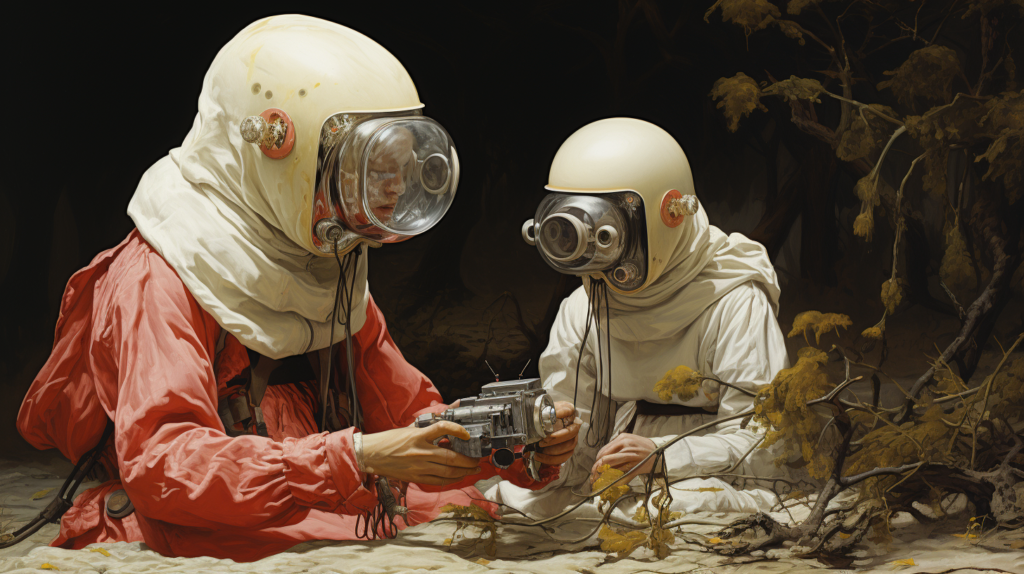Unlock a door to newfound potential- it’s time to think outside the box and become more flexible. Through curiosity and open-mindedness, learn how developing flexibility can open up an entire world of possibilities that will provide a new and exciting outlook on the world.
1. Flexibility: Embrace the Unknown
In a world of disruptive change and constant evolution, it’s more important than ever to embrace the unknown. Flexibility is the key to adapting to unexpected challenges and implementing lasting solutions to existing problems. Here are a few things to remember when embracing the unknown:
- Be open to different solutions. Don’t be afraid to explore different paths that lead to the same destination. Being open to new ideas can often give way to innovative solutions that are more efficient and effective than the ones you had originally planned.
- Look outside your comfort zone. Sometimes in order to tackle big problems, we need to find new ways to approach old problems. Taking a step outside of the usual way of doing things can often result in creative breakthroughs that spark lasting progress.
- Don’t be afraid to take risks. When faced with unfamiliar territory, sometimes taking risks and pushing the status quo is necessary in order to seize new opportunities. Embrace the unknown, and don’t be afraid to take that leap.
The world is constantly changing, and we can either choose to embrace the changes or be left behind. Embracing the unknown can bring with it a sense of adventure and can often lead to innovative solutions that bring lasting progress. Don’t be afraid to explore new territories, take risks, and break the boundaries of the status quo – the world has so much to offer, you just have to be willing to take the first step.

2. Seeing Open-Mindedness as a Process of Growth
To be open-minded is to be tolerant and flexible when it comes to differing opinions and ideas. It’s a state of having a willingness to consider or accept that which is different or unfamiliar. However, open-mindedness is more than just a simple mindset; it’s a process of growth that can evolve over time. Here are a few ways to help you become more open-minded:
- Listen: Letting go of bias long enough to really listen to and understand others’ perspectives can be difficult, but is essential for developing open-mindedness.
- Research: Read books, watch documentaries, investigates current events, and explore topics that challenge your beliefs.
- Converse: Considerately discussing contrasting points of views with friends, coworkers, and family is a great way to build flexible thinking.
Open-mindedness doesn’t occur overnight, but must be cultivated and practiced steadily. Learning how to process and then adopt new information is essential to personal growth. Being open-minded means allowing ourselves to shift and change, continuing our journey of understanding and expanding our knowledge of the world.
3. Developing Mindful Curiosity
Mindful curiosity, while not always as exciting as more traditional pursuits, can be a valuable tool in exploring the world around us. Whether in our work or personal lives, engaging in activities that focus on curiosity can lead to unexpected insights, leading to more meaningful understandings of the things that matter most.
- Pay Attention – A key part of is giving your full attention to the present moment. Look, listen, and experience the moment without judgment or expectation.
- Ask Questions – Don’t be afraid to ask well-thought-out questions to uncover the parts of the situation that might otherwise be missed. Ask “why” and “how” to dig deeper and gain deeper insight.
- Explore the Answers – Follow up on those questions. Go deeper, both physically in exploring the details, and psychologically in exploring the answers to the questions you’ve asked. Learn the nuances of a particular activity or situation.
By embracing and reaping the rewards of mindful curiosity, we open ourselves to the possibility that our lives can be more interesting, and that our relationships with the things (and people) around us can become richer and more meaningful. And with a little practice, even mundane activities can become interesting and rewarding.

4. Understanding and Exploring Your Limitations
Limitless possibilities brought by our mind and body allow us to live our dreams. Nevertheless, all of us need to face our limitations in order to become successful. Unfortunately, disregarding our limitations can have dramatic consequences for our lives and our goals.
Acknowledging Our Limitations – One of the best things we can do is recognize our weaknesses and capabilities. This can be difficult, as many of us may struggle to come to terms with our natural strengths and weaknesses. We often try to push ourselves too far; it is important to take a step back and be honest with ourselves. We have to recognize when it is time to quit and when it is time to push the boundaries.
- Make a list of all of your capabilities and limitations.
- Understand how each limits and affects you.
- Set realistic goals while also trying to push past them.
Exploring Your Limitations – Once we have become somewhat comfortable with our limitations, it is time to look at them in a more creative and aspirational manner. Take the time to really explore every possibility and opportunity. Our limitations can be our greatest teachers. They can open up a whole new world of opportunities and perspectives. An artist may be limited to their brushstroke movements, but this limitation can open up new possibilities, such as using washes or light and dark tones to create a beautiful masterpiece.
5. Challenging Yourself With New Experiences
Why not step outside of your comfort zone and try something new? Although it can seem daunting, taking on a new experience can prove to be rewarding and eye-opening.
The sky can be the limit when it comes to . You could:
- Go on a solo road trip.
- Take up a new hobby or sport.
- Visit a new place, be it down the road or in a foreign country.
- Attend a music festival or gallery opening.
Each experience will bring along with it an opportunity to grow as a person, and to foster new skills that will shape the way you view the world around you. Striking a balance between feeling a little outside your comfort zone and feeling safe and secure is a delicate one, but with some thought, you’ll be able to throw yourself into something new, and come out feeling a real sense of accomplishment.

6. Using Open-Mindedness to Become More Flexible
Open-mindedness is a key element to becoming flexible. When we take in different perspectives and varying ideas, we cultivate a new way of thinking that helps us to tackle tough situations. Here are some practices to help us become more open-minded and flexible.
- Think critically: Develop an attitude of objectivity and thoroughness when dealing with various social and work situations. Learn to question things and take them apart to see how they fit together.
- Listen carefully: Give yourself permission to truly listen to others’ ideas. Rather than quickly dismissing a thought or suggestion, focus on considering different points of view.
- Challenge yourself: Take the initiative to step outside your comfort zone and embrace new experiences and different approaches to problem-solving.
Striving to remain open-minded encourages us to be more accommodating and understanding of we interact with others. As we become more aware of our own biases, we can make more informed decisions and be more tolerant when situation call for it. Learning to be thoughtful and adapting to different environments is the key to developing flexibility.
7. Being Adaptable to Changing Circumstances
If there’s one quality that’s essential for a successful career, it’s adaptability. Life is ever-changing and unexpected events happen. Being able to respond quickly and effectively to changing circumstances can make the difference between success and failure.
The key to adjustability is staying on top of the latest trends, understanding the current culture, and keeping an open mind. It’s important to remain flexible and be willing to go in a different direction in order to find the best solutions. Also, reach out to mentors, colleagues, bosses, or anyone else who can provide helpful insights.
Have a positive attitude and be confident in your abilities. Don’t be afraid to take chances and explore new ideas. With the right attitude and preparation, you can successfully face any challenge you encounter. Having the capacity to adapt will ensure that you are always ahead of the game.
8. Practicing Self-Awareness and Reflection
It’s essential to practice self-awareness and reflection, as self-awareness helps us make better decisions, connect with our emotions in a deeper way, and become more mindful of our environment and its effects on us. Taking the time to hone in on our thoughts, feelings, and overall wellbeing can help us create more meaningful and authentic relationships with ourselves as well as those around us.
Start by taking a few minutes each day to become aware of your thoughts, actions, and reactions. Make a note of how your feelings may be impacting your decisions, and observe any patterns that appear. Consider what and who are helping you in that moment and who and what may be holding you back. As you practice this, you’ll start to notice the stories or patterns you may be telling yourself, and so too will you come to recognize beauty in solitude.
Continuously practicing self-reflection as part of your daily routine equips you with the tools to better understand your thoughts and behaviours and how they interact with one another. Ask yourself question such as:
- Am I being honest with myself?
- Do I find ways to properly express myself?
- What obstacles have I overcome today?
Making a habit of this type of introspection can help you stay in tune with yourself and doing so in a gentle and kind manner is essential for a healthier self-awareness.

9. Growing Through Exploration and Risk-Taking
Exploration and risk-taking are two of the most important traits for personal growth. We can’t really grow unless we explore what’s available and take risks with our choices. But why is taking risks important, and how can we benefit from exploration?
Exploring gives us the opportunity to find new possibilities and obtain useful information. It helps us to gain knowledge and understanding. With exploration, we could potentially find a perfect job, discover a new passion or talent, or build meaningful relationships. Furthermore, it can help us to gain perspective, open our minds to new thoughts, and change our life for the better.
Risk-taking, too, can bring positive changes and numerous rewards. It teaches us to accept responsibility for our actions and to realize that failure is part of the learning process. By taking risks, we can grow as individuals, develop our problem-solving skills, and open up more possibilities. Even if our risks fail, we can still learn from them, which is still beneficial.
- Exploration – exploring helps us to gain knowledge, discover passions or talents, build relationships, and gain perspective.
- Risk-taking – taking risks teaches us responsibility, develops problem-solving skills, and helps us to grow as individuals.
10. Seeing Possibilities in Unexpected Places
Wherever you look, there are potential opportunities — you just have to be creative in recognizing them. And cultivating the ability to see possibilities in the unlikeliest of places will do wonders for your life and career!
Think Outside the Box
One of the best ways you can begin to see possibilities in unexpected places is by stepping outside of your comfort zone. Try to look at the same thing with a different perspective. If there’s an issue that you’ve been stuck on for a while, don’t be afraid to explore different solutions, even if they seem obscure or unconventional. Most importantly, don’t be afraid to fail; take risks that challenge your thinking and see what happens.
Stay Open
When you’re open, you make yourself more available to possibilities. Be aware of connections, patterns, and the different ways of looking at things. Embrace new perspectives and take the time to consider them. It’s also a great idea to try new things and have meaningful conversations with people from different backgrounds.
Keep Learning
Expanding your knowledge can give you the tools to identify possibilities easily. Read about different subjects, learn new skills, and keep an eye on emerging trends in your field. Unearth the potentials of these areas and stay up-to-date with the latest developments. Additionally, don’t underestimate the power of daydreaming and brainstorming; you never know which idea will spark a great discovery!
We all have the power to become more open-minded, curious, and flexible in order to develop strength and resilience in our lives. Let us use our capacity to look at things from a different perspective and fully explore our curiosity for greater flexibility. Be brave and be bold – you’ll never know what new possibilities lay ahead!
